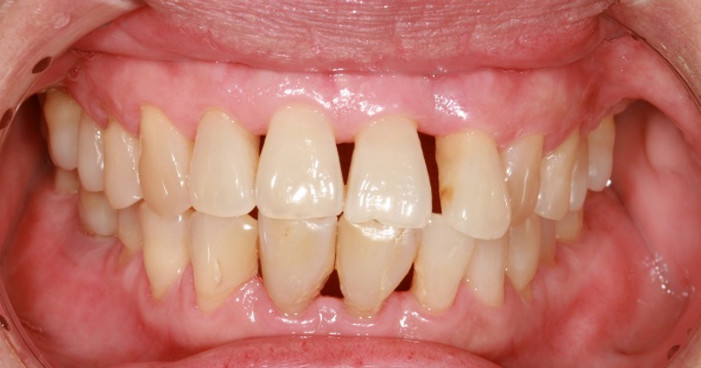Is It Possible for Receding Gums to Grow Back?
November 1st, 2024
How to Fix Receding Gums in Worcester & Central, MA
Tender, swollen gums or teeth that appear elongated are symptoms indicative of receding gums. Associated with gingivitis, receding gums are a precursor to advanced periodontal disease. To preserve and enhance your oral health and smile, Kozica Dental in Worcester and Central, MA, is here to explore how to fix receding gums.
Understanding Receding Gums
Receding gums are a condition defined by the gradual loss of gum tissue, exposing more of the tooth's structure or even root. Depending on the underlying cause, gum recession ranges in severity. In most cases, it causes the remaining gum tissue and teeth to become increasingly sensitive, tender, and prone to further degradation.

The Causes of Receding Gums
Receding gums can derive from a wide range of factors. Common causes of gum recession include:
- Excessive plaque or tartar build-up (gingivitis)
- Periodontal disease caused by untreated gingivitis.
- Brushing your teeth too aggressively
- Genetic predisposition
- Hormonal changes
- Crooked teeth and/or bite misalignments
- Teeth grinding (bruxism)
- Smoking and/or tobacco use
- Age-related tissue loss
Can Gum Tissue Grow Back?
The onset of receding gums may have you wondering whether your gums can grow back on their own. Unlike other tissues in the body, gums cannot regenerate naturally. However, that does not mean you have to live with receding gums forever. There are treatments available to hinder the progression and correct gum recession.
How to Fix Receding Gums
Minor receding gums will not improve on their own and will continue to escalate without appropriate care. To mitigate worsening tissue loss and reinforce the stability of the gumline, it’s important to schedule an oral assessment with a periodontal specialist. They will be able to guide you toward the most effective surgical or non-surgical treatment option.
Scaling & Root Planing
Early-stage gum recession is often addressed using a non-surgical procedure known as scaling and root planing. The scaling portion of treatment leverages the power of an ultrasonic cleaning device to fully eradicate stubborn plaque and tartar beneath the gumline. We finish with root planing, which involves smoothing out the tooth’s surface and associated root.
Surgical Receding Gums Treatment
Advanced gum recession can take a significant toll on the teeth and jawbone. When this occurs, conservative receding gums treatment is no longer sufficient. To target and remove the compromised gum tissue and preserve the nearby teeth and bone, a periodontal specialist may recommend receding gums surgery options, including:
- Gum tissue regeneration
- Soft tissue gum graft
- Surgical pocket depth reduction
Preserve the Integrity of Your Gums
The best way to manage receding gums is to prevent gum recession in the first place. To keep your gums firmly in place, prioritize preventive care, including:
- Brush your teeth twice daily using a soft-bristled toothbrush
- Use the appropriate flossing techniques
- Wear a nighttime mouthguard to combat teeth-grinding
- Refrain from smoking/tobacco products
Personalized Receding Gums Treatment
At Kozica Dental, we recognize the discomfort and risks associated with receding gums. That’s why we offer various periodontal interventions and procedures. Based on an initial oral examination, we will develop a treatment plan to reinforce the appearance and health of your gums and protect the form and function of your smile, which may include a referral to a periodontal specialist.
Achieve a Healthy Smile with Kozica Dental
Address and improve your receding gums with the highest standards of oral healthcare and Kozica Dental. Blending decades of expertise and a passion for glowing smiles, we excel in preventive treatment and restorative procedures for receding gums in all stages. Trust in our compassionate experts for superior periodontal care and a healthy smile.
Learn More About Receding Gums Stages & Treatment
Whether you’re experiencing the effects of receding gums or looking to get proactive about your oral health, you’ve come to the right place. Discover comprehensive preventive dentistry and periodontal care with Kozica Dental in Worcester, MA. Contact us today to schedule a consultation with our team.



